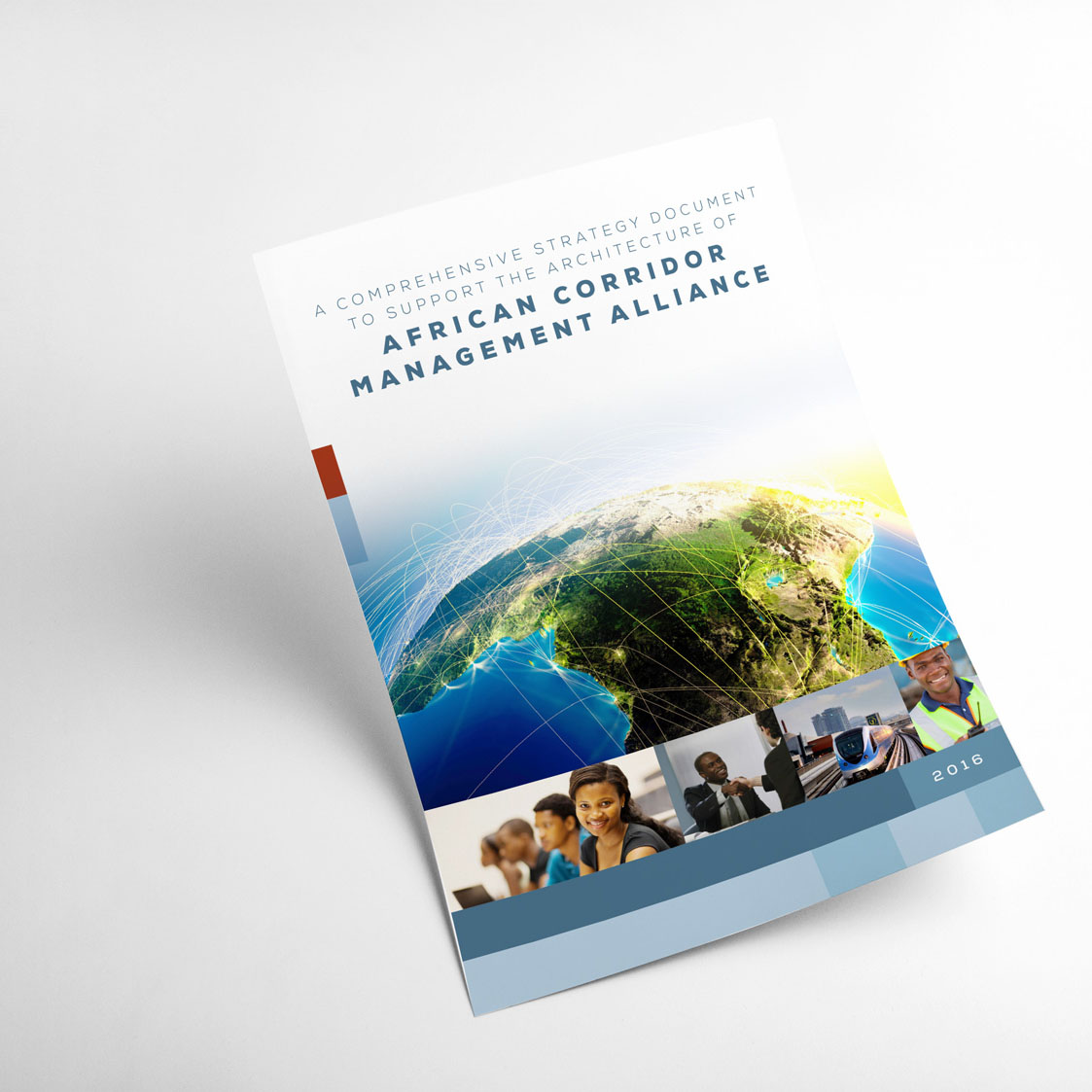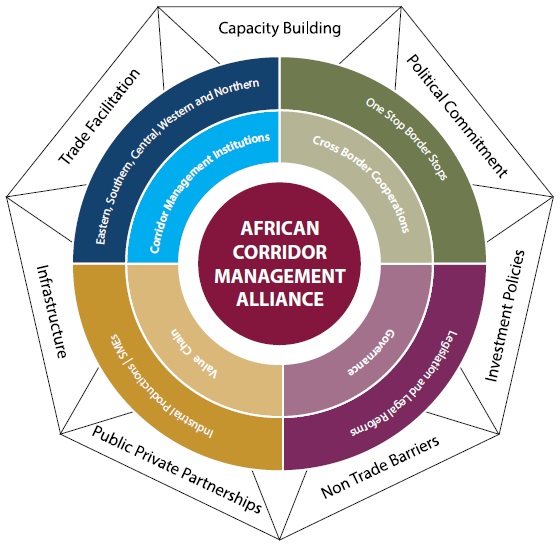African Corridor Management Alliance
Start Date: Mar 03, 2017

In this strategy document, an economic corridor is understood to be a collection of routes linking several economic centers, countries, and ports. While some are only road transport corridors, most of them include more than one mode of transport. Some corridors place emphasis on the facilitation of cross-border trade along corridors. The strategy document emphasizes that the defining feature of economic corridors is that they integrate investments in infrastructure, policy and regulatory frameworks, industrialization and value chain, institutional strengthening and capacity building. Through creating a dynamic business environment along the corridors for value addition, harnessing sector linkages, and cross-border trade, the Corridor States will maximize economic growth.
The strategy document includes discussions on objectives and tactical interventions required to realize the outcomes. It also highlights issues on beneficiaries, partnership, and concerns on sustainability. Relating to the outcomes, the possible activities are identified to ensure the realization of the expected output targets. The costing and budget levels needed to implement the planned activities are discussed as part of the enabling institutional arrangements, including the funding mechanisms.
The strategy document emphasizes that with effective management, economic corridors will improve physical connectivity between the Corridor States, thereby enhancing access to markets, while expanding economies of scale for value chain. Within the framework of the Alliance, economic corridors will enhance the productivity and value addition to the endowed natural resources. The ultimate objective is to enable the expansion of space for production into various sectors of the economies, leading to increased use of local raw materials and opening up access to new investment opportunities. The strategy document argues that the realization of economic development through the corridor management presupposes that there is a provision of energy, transportation and effective information exchange to drive the economic transformation process. In addition, development of corridor initiatives will require technical, managerial and financial resources for adding value to the raw materials and natural resources.
Central role of ACMA

Downloads:
Author(s): Luke Wasonga and Johny Smith

Start Here!
Find out what CreativeBox can do for you.